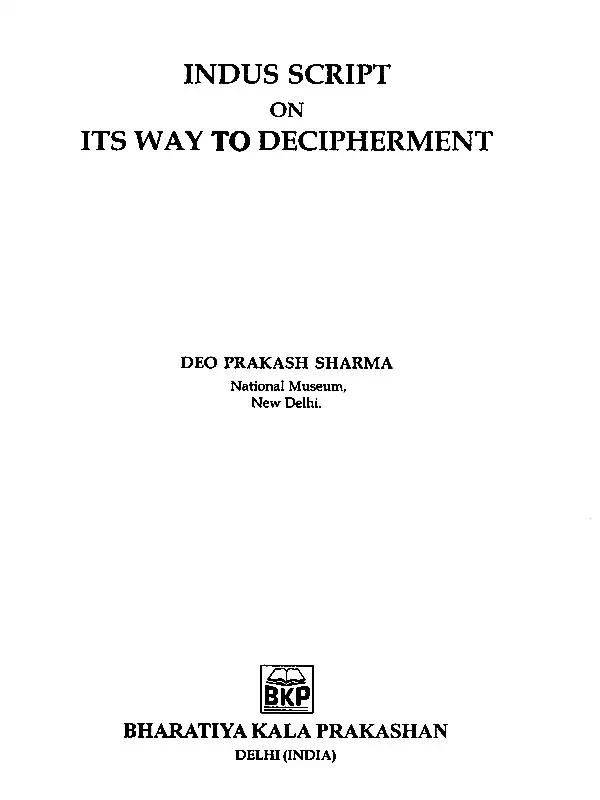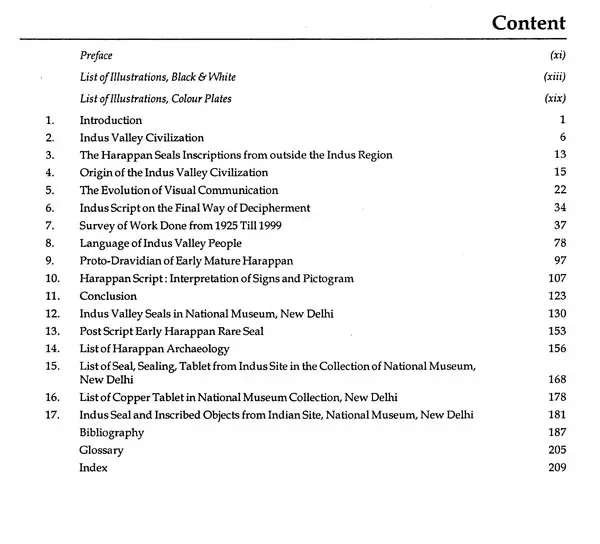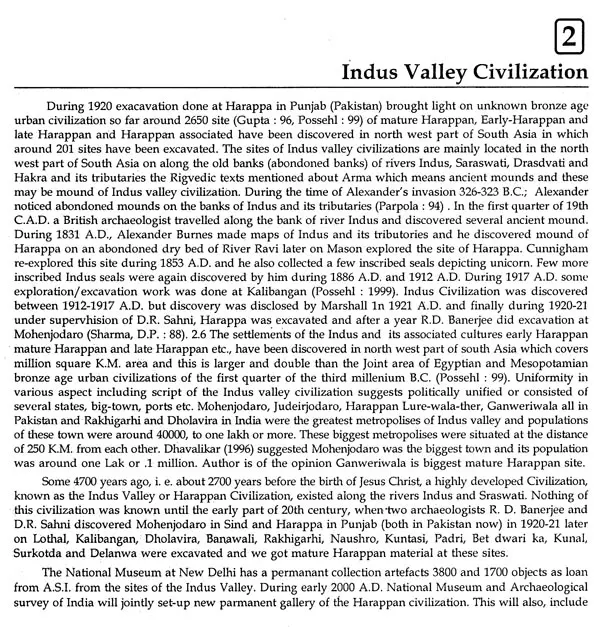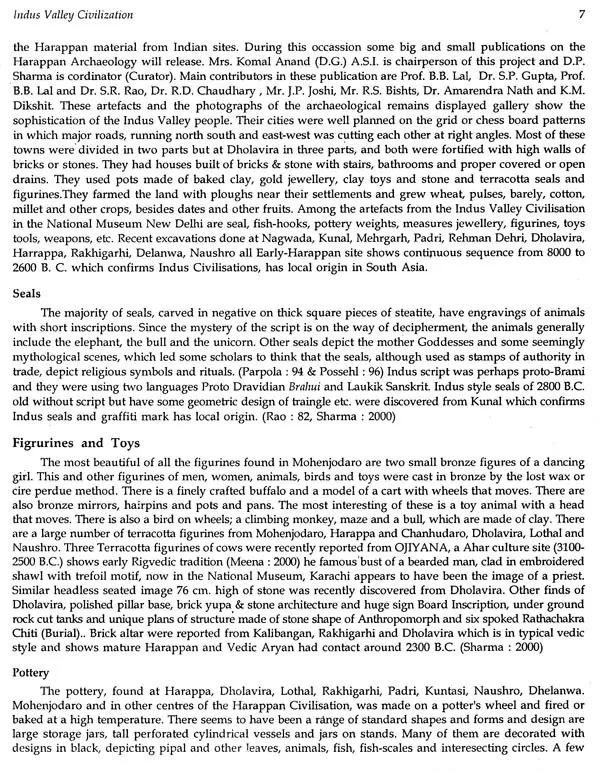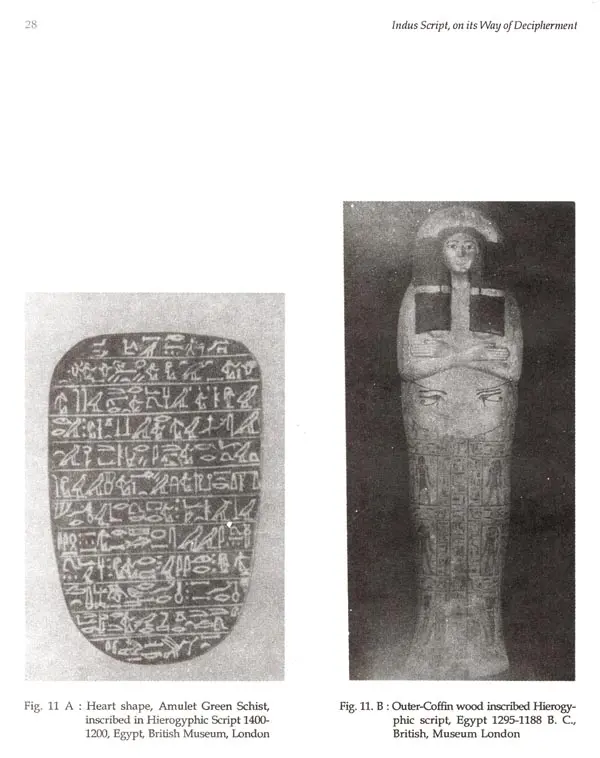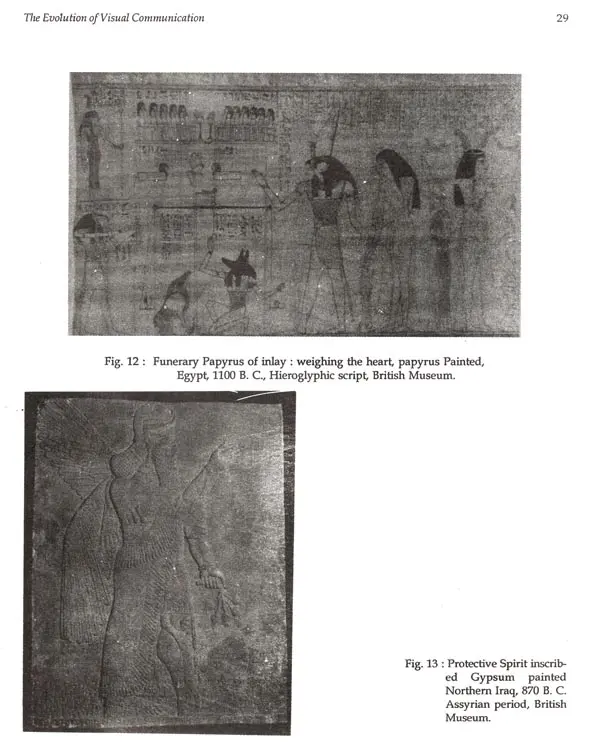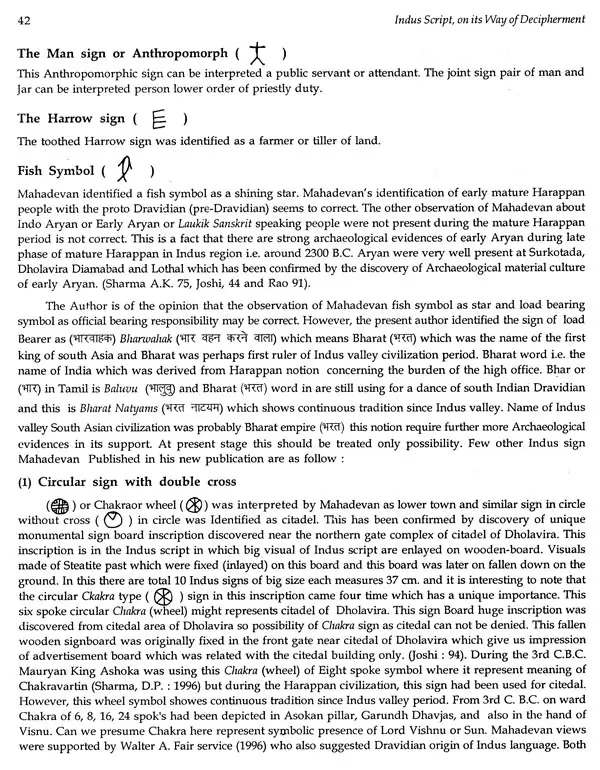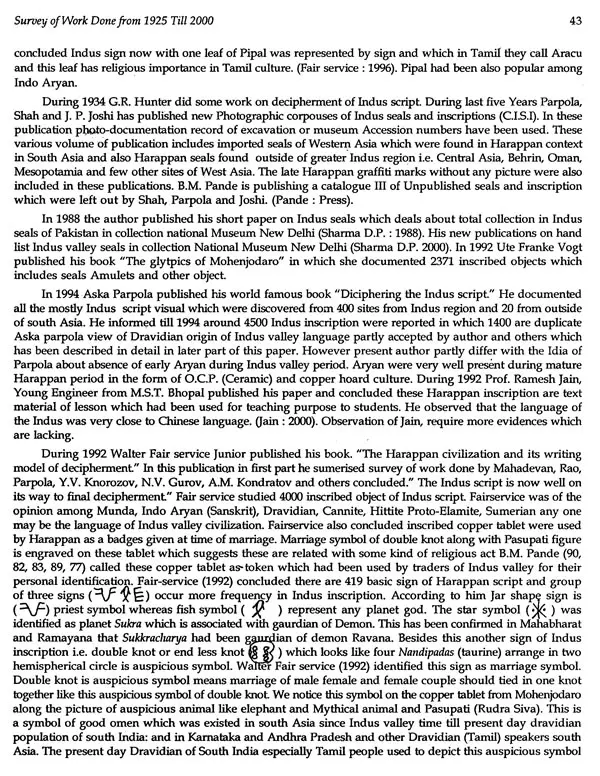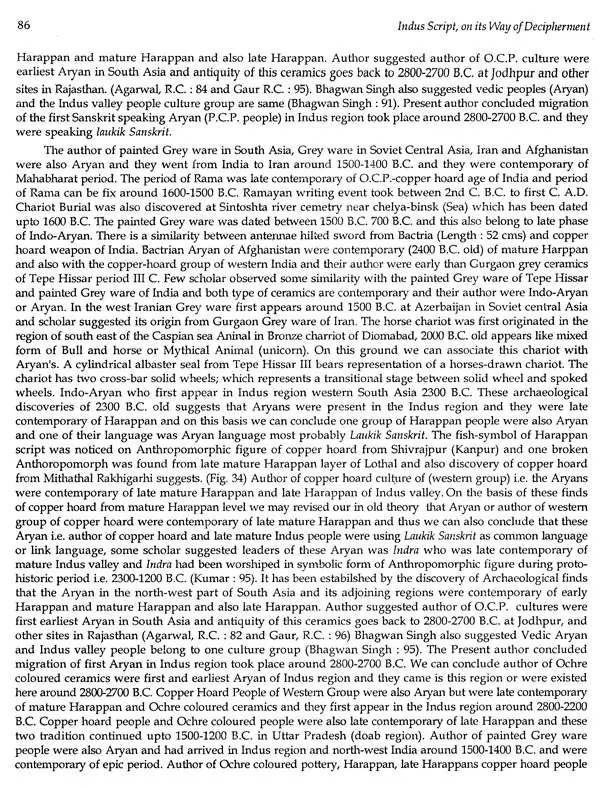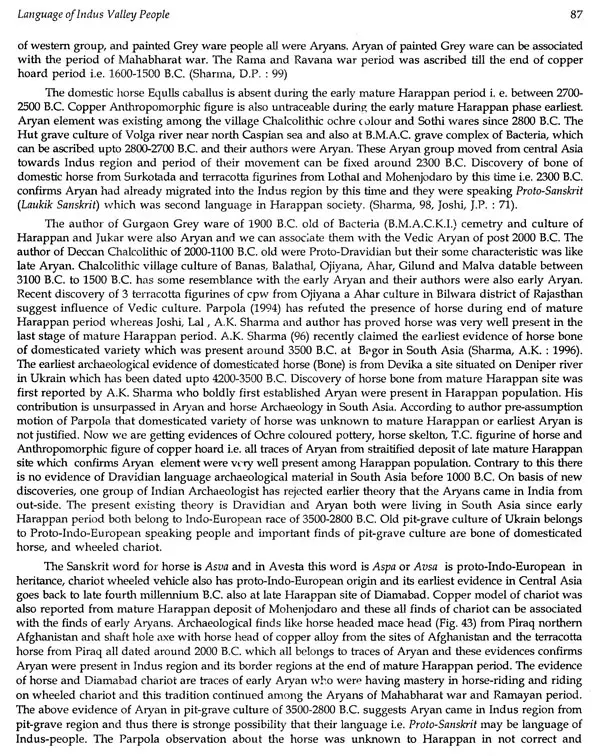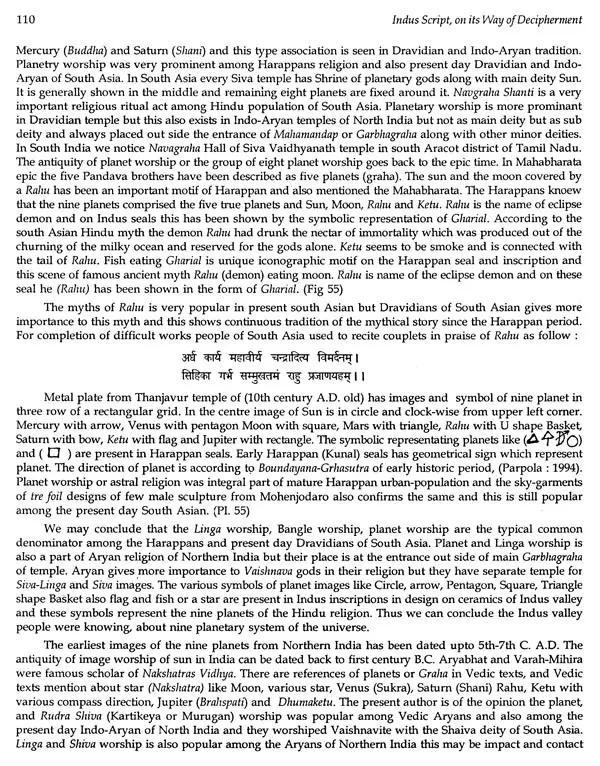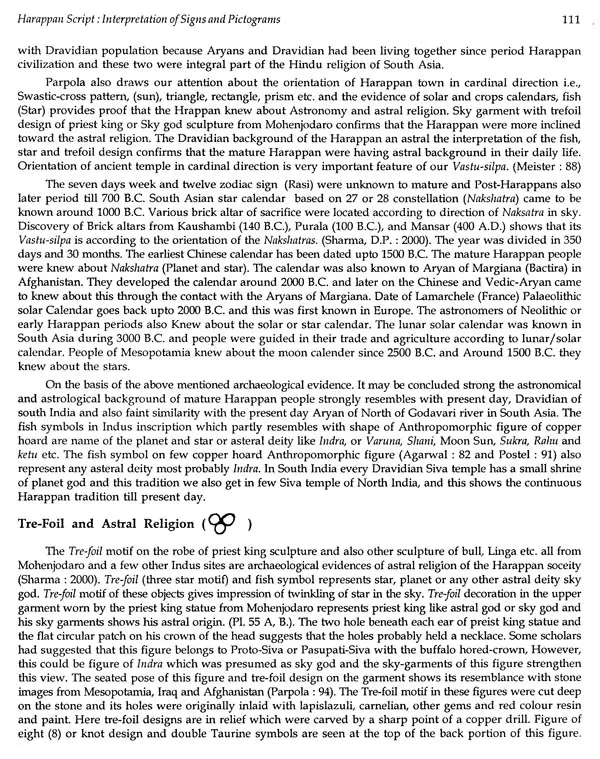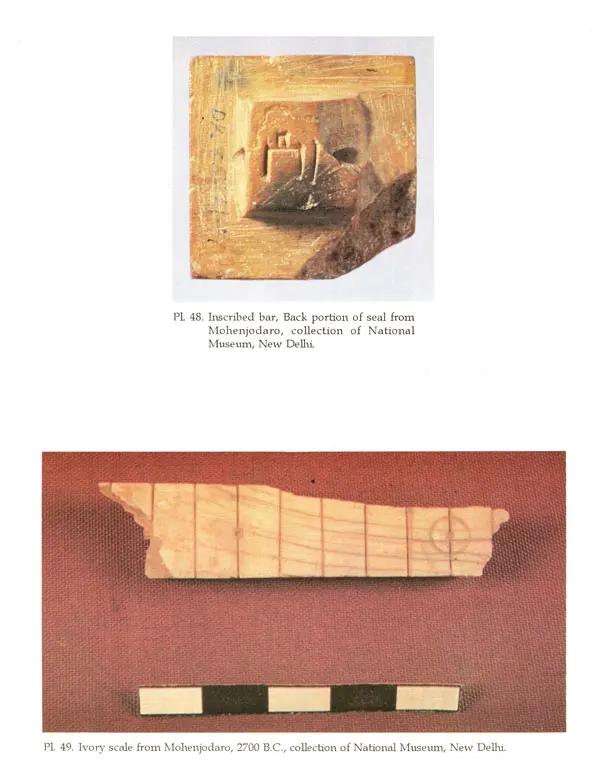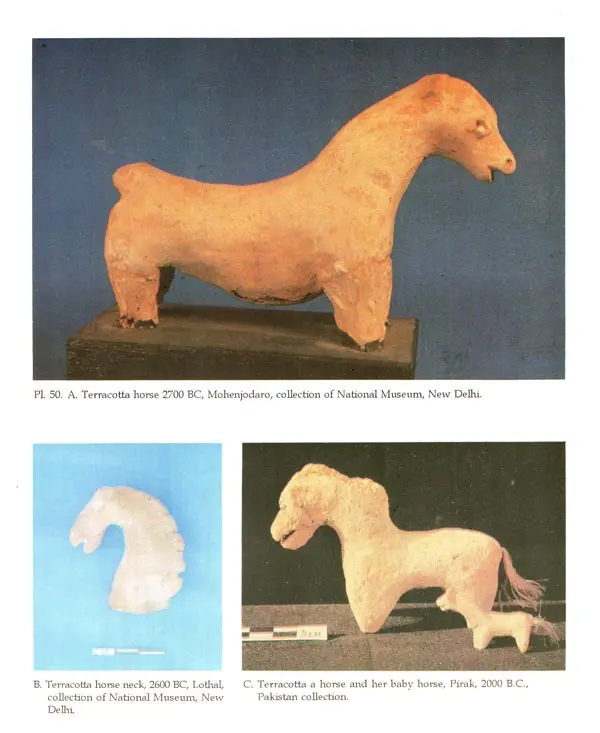
Indus Script on Its Way to Decipherment
Book Specification
| Item Code: | UAO174 |
| Author: | Deo Prakash Sharma |
| Publisher: | Bharatiya Kala Prakashan |
| Language: | English |
| Edition: | 2000 |
| ISBN: | 8186050507 |
| Pages: | 283 (Throughout Color and B/w Illustrations) |
| Cover: | HARDCOVER |
| Other Details | 11.00 X 9.00 inch |
| Weight | 1.12 kg |
Book Description
The Indus valley civilization dated between C 2700-2100 BC (Calibrated date) and its Urban systerm collapsed around C. 2100-2000 BC before the composition of Rigveda the oldest historical Sanskrit documents South Asia which has been dated around C 2300-1500 BC (Lal 97 & 95) The earliest script of South Asians was logo-syllabic Proto Brahmi script of Indus valley civilization which is on its final way decipherment and it bilingual languages were proto (early) dravidian and laukik Sanskrit (Sharma: 2000), Its one of the languages was Proto Dravidian most probably archaic form of Brahui which is still living Dravidian languages in Indus valley region of north west part of South Asia and around. 5 million (Five lakh) people of Baluchistan (Pakistan), Afghanistan and Gujarat still speak Brahui archaic Dravidian language. The other language of Indus valley people was laukik Sanskrit. It has been established that OCP (ceremics) people existed in the Indus region since C. 2800 B.C. who were (Gaur: 96) the earliest Aryan of South Asia and their language was perhaps Loukik Sanskrit. Thus we can conclude bilingual Indus people were speaking proto Dravidian as first language and Laukik Sanskrit as their second language. They were bilignual and their language were proto Dravidian and proto Sanskrit later on around 2100 B.C. Dravidian language died out and Aryan language-proto Sanskrit continued by late Harappan (Sharma: 99).
We do not have longer and biscriptual inscription of Indus valley script like those of Rosetta and other biscriptual and bilingual inscriptions of west and middle east Asia. We were able to decipher Ashokan Brahimi script (C. 250 B.C old) because Ashokan rock/pillar and edicts were engraved in three scripts ie. Kharosthi, Brahimi and Armaic (Greek) and these type inscription are having some common meaning. Armaic script had been already deciphered so we were able to decipher its translations in Kharosthi and Bralimi scripts.
During 250 B.C to 300 A.De. Mauryan, Sunga and Kusana periods the main scripts of South Asian) were Brahmi, Kharosthi, Armaic and also Sanku and their languages were Sanskrit. Pali, Prakrit, Greek and Tamil. The earliest known Dravidian languages of south Asian's are Brahui and Tamil and their antiquity goes back to 1000 B.C. and 250 BC respectively. The earliest record of other Dravidian languages of South Asia Le. Telugu, Kannada, Malayalam and few others goes back to 500 A.D. These all later Dravidian languages has their origin from a Single Proto-Dravidian language bacause these all have some common linguistic features.
Sanskrit, Prakrit, Pali and other Indo-Aryan languages were emerged from Laukik Sanskrit. The earliest evidence of Laukik Sanskrit goes back to 2200- 2000 B.C. i.e. end of mature Indus period, so we can presume Sanskrit and Proto Dravidian Brahui may be a strong contender of Indus valley language. Antiquity of Brahui does not go beyond 1000 B.C. whereas Proto Sanskrit language begins around 2200 B.C or even carly in north-west India. Other archaeological evidence support the theory that Proto-Dravidian people were living in Indus region since 3000 B.C. and Indo-Aryan came on the Harappan scene during middle of 3rd millenium B.C. On this basis it was concluded, that the early mature Indus valley people were non-Aryan and they were perhaps Proto-Dravidian.
Book's Contents and Sample Pages
